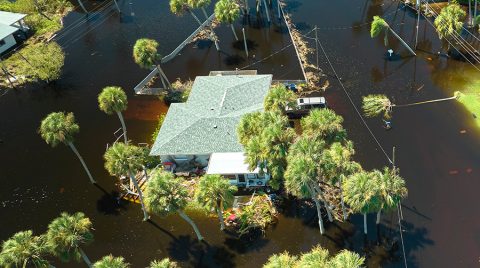-
Property & Casualty
Property & Casualty Overview

Property & Casualty
We offer a full range of reinsurance products and the expertise of our talented reinsurance team.
Expertise
Publication
High-Low Agreements Can Prevent Large Plaintiff Verdicts
Publication
Medical Marijuana and Workers’ Compensation
Publication
Secondary Peril Events Are Becoming “Primary.” How Should the Insurance Industry Respond?
Publication
Risks of Underinsurance in Property and Possible Regulation
Publication
Benefits of Generative Search: Unlocking Real-Time Knowledge Access
Publication
Battered Umbrella – A Market in Urgent Need of Fixing -
Life & Health
Life & Health Overview

Life & Health
We offer a full range of reinsurance products and the expertise of our talented reinsurance team.

Publication
Thinking Differently About Genetics and Insurance
Publication
Post-Acute Care: The Need for Integration
Publication
Trend Spotting on the Accelerated Underwriting Journey
Publication
Medicare Supplement Premium Rates – Looking to the Past and Planning for the Future U.S. Industry Events
U.S. Industry Events
Publication
The Future Impacts on Mortality [Video] -
Knowledge Center
Knowledge Center Overview

Knowledge Center
Our global experts share their insights on insurance industry topics.
Trending Topics -
About Us
About Us OverviewCorporate Information

Meet Gen Re
Gen Re delivers reinsurance solutions to the Life & Health and Property & Casualty insurance industries.
- Careers Careers
Florida SB 2A – Notable Changes to Florida Property Insurance Regulations

February 15, 2023
Jessica Clarke
Region: North America
English
The Florida Legislature has recently taken steps to address issues with residential and commercial property insurance. One of the most significant pieces of legislation to come out of this effort is Senate Bill 2A (SB 2A), which was adopted into law on December 16, 2022. This bill aims to stabilize the state’s housing market and provide much-needed relief to policyholders who have seen their homeowners’ insurance prices skyrocket and insurers go bankrupt.1
Both policyholders and insurance companies need to be aware of the changes brought about by SB 2A and take steps to ensure that they comply with the new law and are well-prepared for any changes it may bring. In this blog, we take a closer look at some of the critical modifications in SB 2A and provided tips on how insurance companies can prepare for the changes.
Prior to SB 2A, policyholders who obtained a favorable judgment against an insurer under an insurance policy were previously entitled to attorney’s fees and expenses. SB 2A seeks to address the number of claims litigated by repealing Florida’s one-way attorney’s fee clause. By repealing this clause, both parties are now required to bear their own legal costs in such disputes.
SB 2A also addresses the issue of Assignment of Benefits (AOB). AOB occurs when a policyholder transfers their benefits to a third party, such as a contractor or a public adjuster. This practice frequently resulted in inflated or fraudulent claims. To prevent this, SB 2A prohibits policyholders from assigning their insurance benefits to a third party following a loss.
The amendment now prohibits insureds from filing bad faith claims solely on the basis of an appraisal award or an offer of judgment payments. Previously, an appraisal award allowed the insured to sue for bad-faith; however, SB 2A presently states that a bad-faith action can only be brought after an insurance contract has been breached.
SB 2A also includes several provisions aimed at encouraging the prompt settlement and payment of insurance claims. Many of the changes require quicker turnaround time/response time by the insurance carrier. For example, the law reduces the time for insurance companies to pay or deny a claim from 90 days to 60 days. Furthermore, the bill modifies several deadlines pertaining to an insurer’s claims handling requirements:
- Reduces the time for the insurer to evaluate and acknowledge claim correspondence from 14 to 7 days.
- Requires the insurer to start an investigation into a claim in 7 days, down from 14 days.
- Requires the insurer to conduct a physical inspection of damages more quickly, down from 45 days to 30 days (this requirement extends to storm claims).
- Requires the insurer to provide the policyholder with an adjuster’s report estimating damages within seven days of its creation.
- Reduces the time it takes to pay or deny any initial, reopened, or supplemental claim from 90 days to 60 days, unless the failure to pay is due to circumstances beyond the insurer’s control.
- The bill shortens the time for policyholders to report a claim under the policy from 2 years to 1 year for a new or reopened claim, and from 3 years to 18 months for a supplemental claim.
What can insurance carriers do to prepare for the new law’s impacts?
Generally, insurance companies should prepare for new laws by staying current on proposed legislation, assessing the potential impact on their business, and collaborating with their legal departments to ensure compliance. Moreover, companies may be required to modify their current policies, procedures, and systems to comply with the new legislation. As appropriate, companies should develop a strategy for implementing changes to remain in compliance. This may include updating internal systems, updating customer communications, and providing additional employee training. Once the modifications have been implemented, they should monitor the bill’s impact and make any additional necessary changes. By taking these measures, insurance companies can ensure that they comply with the new regulations and provide the highest level of customer service possible.
The changes required by SB 2A may place additional strain on companies’ claims departments, which must now evaluate claims more quickly and determine what information is required to meet the new deadlines. More time and resources may be required, stretching departmental personnel and resources to ensure compliance with the new timeframes.
It is important to note that the changes will not apply to policies issued before December 16, 2022. Florida courts have ruled that statutory changes affecting insurance policies cannot be applied retrospectively to policies established prior to the effective date of the statute.
Overall, SB 2A represents a significant advancement in addressing issues plaguing the Florida insurance market. This bill has the potential to provide much-needed relief to policyholders while also stabilizing the state’s housing market by promoting fair and efficient claims procedures, reducing opportunities for fraud and abuse, and encouraging the prompt settlement and payment of claims.
Endnote
- The bill can be read in its entirety on the state website: https://www.flsenate.gov/Session/Bill/2022D/2D




